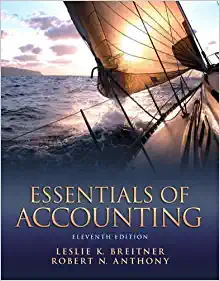Answered step by step
Verified Expert Solution
Question
1 Approved Answer
Where does the $15,000 come from in the second question or the $20,000 in the third question? E12-5 O. Guillen (beginning capital, $60,000) and K.
Where does the $15,000 come from in the second question or the $20,000 in the third question?
 E12-5 O. Guillen (beginning capital, $60,000) and K. Williams (beginning capital ($90,000) are partners. During 2012, the partnership earned net income of $70,000, and Guillen made drawings of $18,000 while Williams made drawings of $24,000. Your answer is correct. Assume the partnership income-sharing agreement calls for income to be divided 45% to Guillen and 55% to Williams. Prepare the journal entry to record the allocation of net income. (For multiple debit/credit entries, list amounts from largest to smallest e.g. 10, 5, 3, 2.) Explanation Account/Description Income Summary K. Williams, Capital ($70,000 55%) O. Guillen, Capital ($70,000 45%) Debit 70,000 Credit 38,500 31,500 Your answer is correct. Assume the partnership income-sharing agreement calls for income to be divided with a salary of $30,000 to Guillen and $25,000 to Williams, with the remainder divided 45% to Guillen and 55% to Williams. Prepare the journal entry to record the allocation of net income. (For multiple debit/credit entries, list amounts from largest to smallest e.g. 10, 5, 3, 2.) Explanation Account/Description Debit Credit Income Summary O. Guillen, Capital [$30,000 + ($15,000 45%)] K. Williams, Capital [$25,000 + ($15,000 55%)] 70,000 36,750 33,250 Your answer is correct. Assume the partnership income-sharing agreement calls for income to be divided with a salary of $40,000 to Guillen and $35,000 to Williams, interest of 10% on beginning capital, and the remainder divided 50%-50%. Prepare the journal entry to record the allocation of net income. (For multiple debit/credit entries, list amounts from largest to smallest e.g. 10, 5, 3, 2.) Explanation Account/Description Debit Income Summary 70,000 O. Guillen, Capital K. Williams, Capital Guillen: [$40,000 + $6,000 - ($20,000 50%)] Williams: [$35,000 + $9,000 - ($20,000 50%)] Credit 36,000 34,000 Your answer is correct. Compute the partners' ending capital balances under the assumption in the previous part of the question. Explanation Guillen: $60,000 + $36,000 - $18,000 = $78,000 Williams: $90,000 + $34,000 - $24,000 = $100,000
E12-5 O. Guillen (beginning capital, $60,000) and K. Williams (beginning capital ($90,000) are partners. During 2012, the partnership earned net income of $70,000, and Guillen made drawings of $18,000 while Williams made drawings of $24,000. Your answer is correct. Assume the partnership income-sharing agreement calls for income to be divided 45% to Guillen and 55% to Williams. Prepare the journal entry to record the allocation of net income. (For multiple debit/credit entries, list amounts from largest to smallest e.g. 10, 5, 3, 2.) Explanation Account/Description Income Summary K. Williams, Capital ($70,000 55%) O. Guillen, Capital ($70,000 45%) Debit 70,000 Credit 38,500 31,500 Your answer is correct. Assume the partnership income-sharing agreement calls for income to be divided with a salary of $30,000 to Guillen and $25,000 to Williams, with the remainder divided 45% to Guillen and 55% to Williams. Prepare the journal entry to record the allocation of net income. (For multiple debit/credit entries, list amounts from largest to smallest e.g. 10, 5, 3, 2.) Explanation Account/Description Debit Credit Income Summary O. Guillen, Capital [$30,000 + ($15,000 45%)] K. Williams, Capital [$25,000 + ($15,000 55%)] 70,000 36,750 33,250 Your answer is correct. Assume the partnership income-sharing agreement calls for income to be divided with a salary of $40,000 to Guillen and $35,000 to Williams, interest of 10% on beginning capital, and the remainder divided 50%-50%. Prepare the journal entry to record the allocation of net income. (For multiple debit/credit entries, list amounts from largest to smallest e.g. 10, 5, 3, 2.) Explanation Account/Description Debit Income Summary 70,000 O. Guillen, Capital K. Williams, Capital Guillen: [$40,000 + $6,000 - ($20,000 50%)] Williams: [$35,000 + $9,000 - ($20,000 50%)] Credit 36,000 34,000 Your answer is correct. Compute the partners' ending capital balances under the assumption in the previous part of the question. Explanation Guillen: $60,000 + $36,000 - $18,000 = $78,000 Williams: $90,000 + $34,000 - $24,000 = $100,000 Step by Step Solution
There are 3 Steps involved in it
Step: 1

Get Instant Access to Expert-Tailored Solutions
See step-by-step solutions with expert insights and AI powered tools for academic success
Step: 2

Step: 3

Ace Your Homework with AI
Get the answers you need in no time with our AI-driven, step-by-step assistance
Get Started


